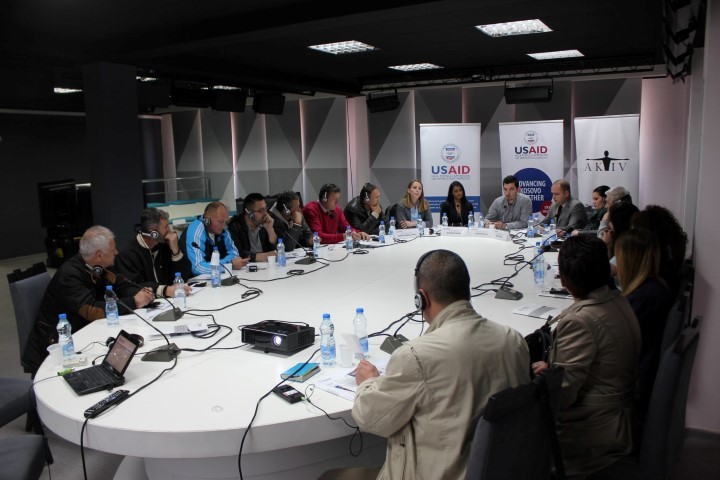Speeches Shim

October 2017—Kosovo businesses often rely on oral contracts or “handshake” deals to conduct business transactions rather than putting agreements in writing. Such non-written agreements can result in numerous complications.
When a dispute arises under a verbal agreement, the parties are unclear on their rights and obligations and are subject to misunderstandings, uncertain contractual terms, and difficulty proving any details of the agreement. When businesses use well-written contracts, the terms are unambiguous. If a dispute arises, the parties can refer to the written agreement or present the contract as evidence in judicial or other proceedings.
In 2011, USAID initiated the Qite n’Letër (Put It on Paper) campaign, educating businesses about the benefits of written contracts over oral agreements. The campaign has targeted businesses from various sectors including agriculture, wholesale and distribution, food processors, and women and minority-owned businesses. Operating through public service announcements initially, the campaign expanded into roundtables to instruct businesses about the traps and pitfalls of oral agreements, providing ready-to-use standard form contracts.
“The initiative has been very useful to us as we have learned about the importance of contracts and the benefits when using written contracts,” says Nora Zhilivoda of the Kosovo Apparel Marketing Association. “The roundtables are also helpful as we now have examples of contracts that we can modify and use and learn more about what the contract contains in detail.”
To date, over 400 business representatives have participated in roundtables conducted throughout all regions of Kosovo. Many of the businesses and entrepreneurs in these remote communities claim that, without the campaign, they would not have access to such beneficial information for establishing or growing their business.
A survey on written contract usage was conducted in 2011, 2014 and 2015 to measure the number of businesses that use written, rather than oral, contracts. Representatives from 900 businesses throughout Kosovo responded to the survey. In 2011, 67 percent of businesses regularly used written contacts. This number increased to 82 percent in 2015, reflecting a 15 percent increase from 2011 to 2015.
USAID’s five-year Contract Law Enforcement program is designed to improve the rule of law in Kosovo and create a better business environment for economic development and investment. The program aims to help Kosovo institutions improve the enforcement of civil judgments, dramatically reduce the backlog of court cases, and strengthen the contract and commercial law framework and systems, including those for bankruptcy and mediation.
LINKS
Follow @USAIDKosovo, on Facebook, on YouTube

Comment
Make a general inquiry or suggest an improvement.